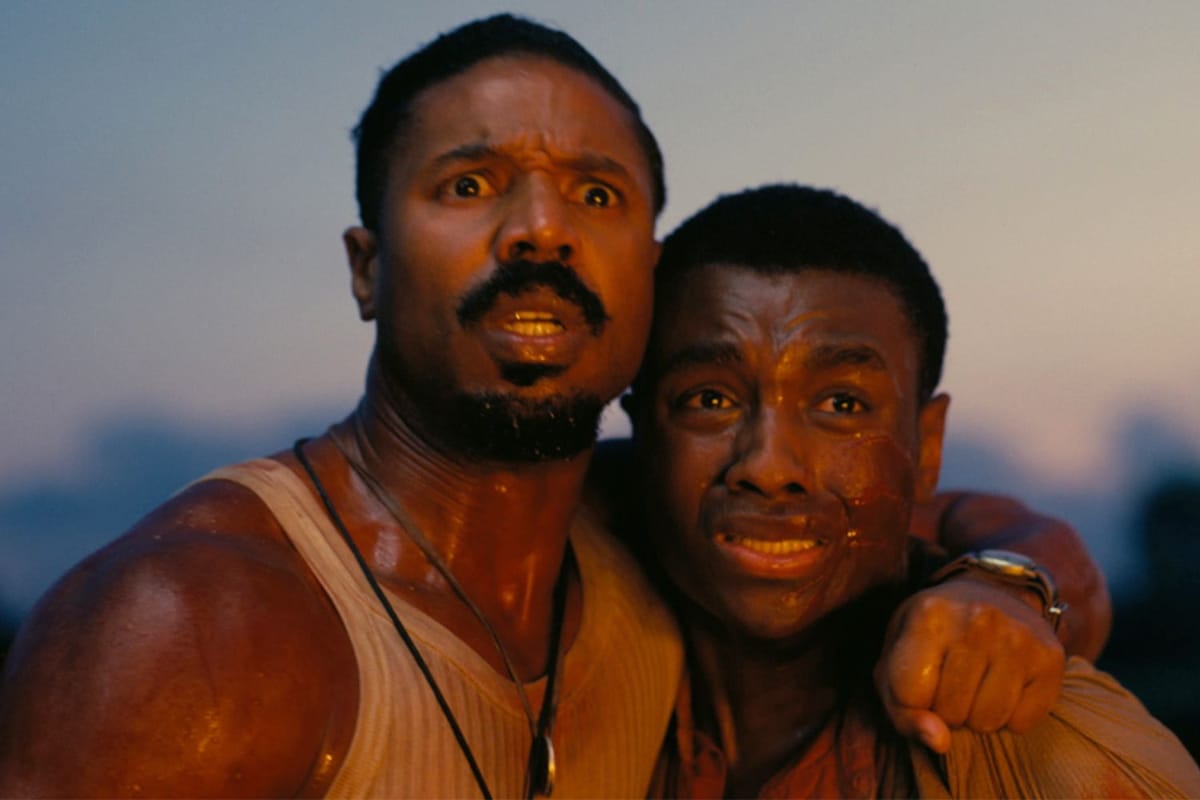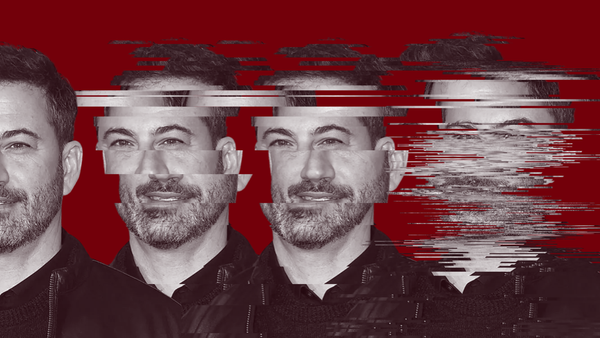'Sinners' refuses to look away

Sinners isn't just a vampire movie that happens to be set in the Jim Crow south. Every major plot point hinges on America's failure to live up to the ideals of both the First and Second Founding:
- nominally free blacks are shown working in conditions scarcely better than slavery, being paid in "scrip," essentially fake money only redeemable at the plantation owner's store
- they are denied access to public spaces, to say nothing of social abstractions like opportunity and capital
- crimes like "vagrancy" are used to jail black citizens, whereupon they are impressed into forced labor under the convict-leasing system
- and the fear of being lynched looms over even the smallest decisions about how to behave in public
Without some baseline knowledge of how American society had failed the Smokestack Twins and the patrons of their juke joint, the behavior of the characters in this movie would not make sense.
Why are these black guys letting this white businessman know they have guns just because he called them "boys"?
Why are the patrons of this bar attempting to pay for their drinks using worthless wooden tokens? And why are the proprietors accepting them as legal tender, even knowing that they're useless?
Why does the sight of a chain gang send the town drunk into a sorrowful reverie? Surely everyone convicted of a crime got no less than they deserved?
But the movie works and audiences are eating it up 🧛 because the American people aren't as ignorant of their own history as the Right would like them to be. If you walked into the theater completely naive to the sharecropping system and its cruelties, as the Trump administration would prefer, the events of Sinners would be utterly incomprehensible. And yet these are precisely the sort of details that Trump and his ideological allies in state governments are currently excising from school curricula, government websites, and National Parks.
Today's Right holds that it is un-American to acknowledge that anything bad has ever happened in America. That it is un-American to criticize the Constitution or its Framers. That, to the extent that anything bad ever did happen America, it was just kind of a random fluke, more like a natural disaster than the result of deliberate policy choices and besides – can't we just let bygones be bygones?
Stephen Miller: "Children will be taught to love America. Children will be taught to be patriots. Children will be taught civic values for schools that want federal taxpayer funding ... we're gonna make sure these funds are not being used to promote communist ideology."
— Aaron Rupar (@atrupar.com) 2025-05-01T13:24:08.527Z
It goes without saying that this view of American history is utterly incoherent. It's like if being a fan of a football team meant you're only allowed to talk about the wins, and you should not just merely ignore the losses but you should also make a concerted effort to expunge all public record of them.
The incoherence of this theory of American history partly derives from the fact that it is not a genuine theory of American history. It's just a useful fiction running cover for the Right's actual view of American history: that America was better when it was a white male aristocracy. It's okay to criticize the country and the occupants of its highest office, but the load-bearing ideological pillars of white supremacy are out of bounds.
Why, after all, is it okay to dislike some American presidents and not others? Why don't Bill Clinton, Barack Obama, and Joe Biden enjoy the same immunity from criticism as Thomas Jefferson or Andrew Jackson? The answer is obvious: the Right happens to like the policies of the latter and they detest the policies of the former. The Right is willing to tolerate policies like Indian Removal and slavery – but Medicaid expansion is beyond the pale.
When they ride in like white knights to defend the honor of the Framers, it's always to rescue the reputation of a slaver from the harsh judgment of history. They're never quite as interested in elevating the profile of someone like Gouverneur Morris, a delegate to the Constitutional Convention who passionately opposed slavery from the outset. It's never Charlie Kirk and Ben Shapiro leading the cavalry to celebrate someone like Thaddeus Stevens, one of the standard-bearers for the Radical Republicans in Congress and a key voice shaping the Reconstruction Amendments.
Just a weird coincidence, I'm sure.
Stephen Miller, the ghost of Toby Keith, and people with Punisher-inflected American flag decals on their F-150s want to sell you a version of patriotism that prizes style over substance. It asks you to suppress your doubts, not to love your country despite your doubts. It's an American flag made so brittle by its gilding that it dissolves at the slightest gust of wind. It has the ethic of a multi-level marketing scheme: just read from the script, don't ask too many questions, and all your wildest dreams will come true.
Theirs is a vision strikingly similar to what the vampire Remmick and undead Stack are offering when they're trying to persuade Smoke give them permission to enter the juke joint. But Smoke turns down immortality and an eternal reunion with his twin brother, opting instead to make a last, desperate stand with the few remaining survivors – however grim the odds. In making this choice, Sinners offers a better way forward. And the record-setting box office revenue suggests it's a path many Americans are eager to take – despite, or maybe even because of, the Trump administration's ongoing attempt to resegregate American society.
It's a vision of patriotism that grabs the country by the lapels and demands that it gets it shit together and lives up to its promises, footing the bill for a stint in rehab if necessary. It's a vision of patriotism that echoes W.E.B. Du Bois just three years after the fictional events of Sinners, at a time when the truth about slavery and the demise of Reconstruction was already being contested.
"Nations reel and stagger on their way," wrote Du Bois in Black Reconstruction in America, "they make hideous mistakes; they commit frightful wrongs; they do great and beautiful things. And shall we not best guide humanity by telling the truth about all this, so far as the truth is ascertainable?"





